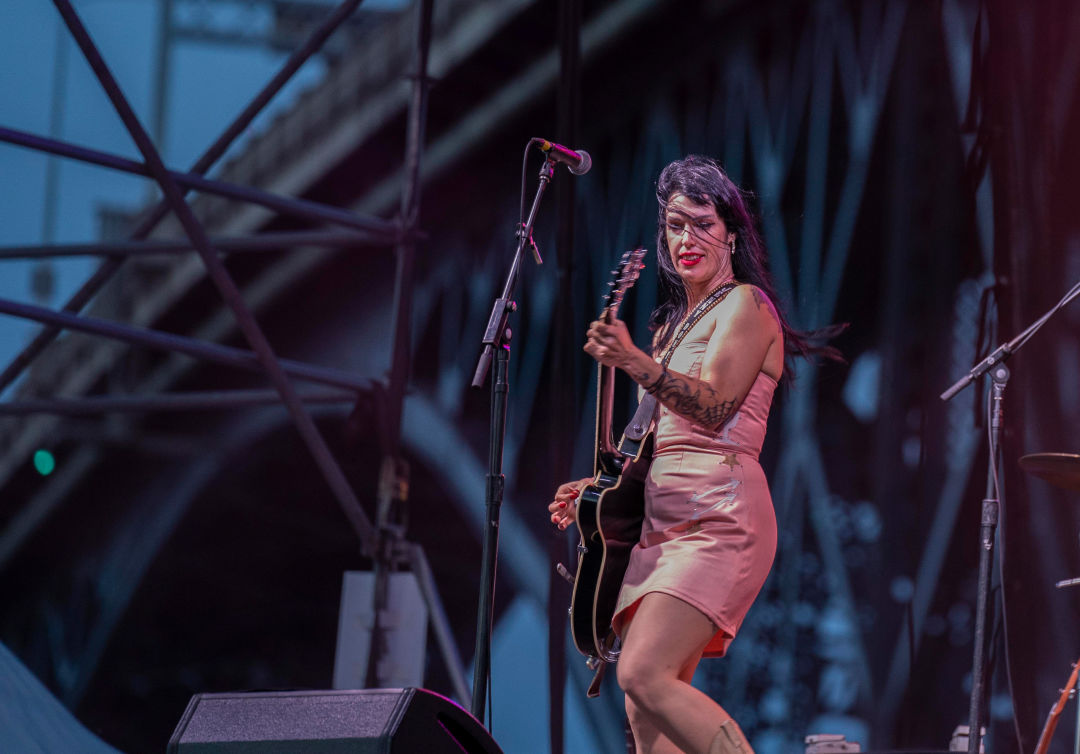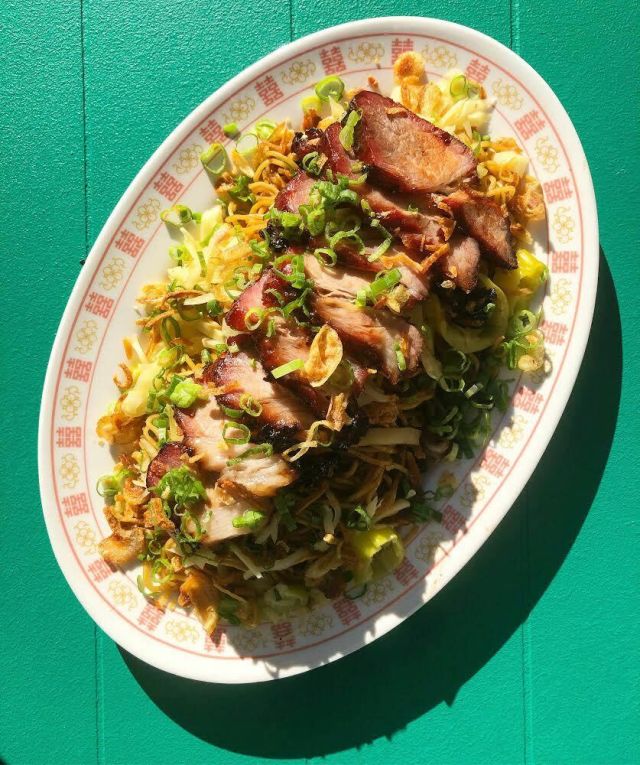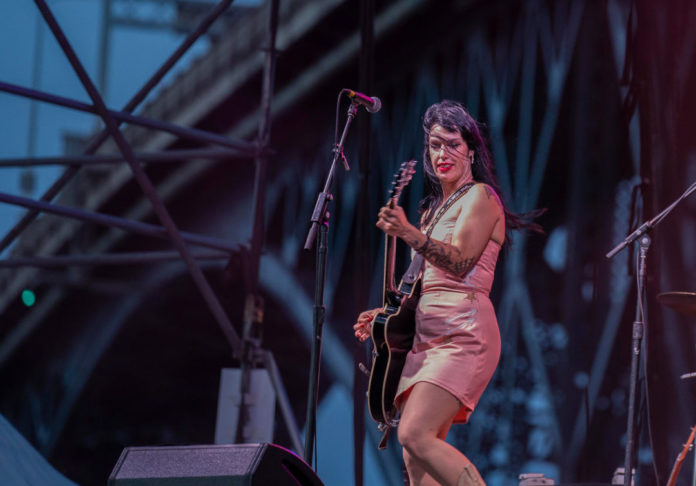
On a hot Portland weekday, a line forms in Pioneer Courthouse Square at a food cart with a punny name, Fried Egg I’m in Love. At least one rentable Lime scooter lists awkwardly in every corner of the paved block. A cloud of smoke—the old-
fashioned cigarette kind, not even weed—hangs in the air, as apparently the dream of a ’90s nicotine fix is what’s most alive in Portland. Rose City is back, baby. But it’s not the same.
A few blocks away, on a street named for gay rights activist Harvey Milk, a maintenance worker in a navy jumpsuit scrubs the rough concrete exterior of a parking garage, removing a red swath of anti-police graffiti. Protests, sometimes resulting in violence, have shaken Portland well into 2021, and the city still carries indelible marks from the pandemic and a year of unrest. To visit the Rose City now is to walk into a place that isn’t necessarily going back to the status quo—it’s a metropolis that grew up a little while no one was looking.
Compare Portland’s old to new simply by traversing downtown lunch options. When the city’s full-block food cart pod was dismantled in 2019 (for a shiny skyscraper that will house a Ritz-Carlton), the city lost its biggest collection of signature eateries, a dizzying lineup of shawarma and Korean barbecue burritos that can’t quite be recreated in the smaller hubs that blossomed elsewhere.
So wander north to the shiny Cooperativa in the Pearl District, an Italian food hall launched last September. The venture links a fresh food market with tiled counters serving square, Roman-style pizzas and cocktails. It still represents Portland values, highlighting produce vendors and dishing handmade pastas, but this is not the street takeout of old.
Or contrast the new Hotel Grand Stark, run by the company that gave Seattle the Palihotel, with the city’s usual haunts. From its Eastside location, Grand Stark shares a vintage aesthetic (the building dates back to 1906) and commitment to communal areas with, say, the quirky Ace Hotel. But its muted color palette and rainfall showers target a choosier customer, and a lobby lined with shelves of sculptures suits an afternoon of remote work—a far cry from the happy hour scene that defined the Ace pre-Covid.
A few blocks away on Division, the shell of onetime sensation Pok Pok stands empty, with only the memory of its sticky, saucy chicken wings. Pok Pok’s sister Whiskey Soda Lounge, across the street and a few doors down, once captured its overflow behind big glass windows; now repainted a cheery teal, the new Oma’s Hideaway fills the space with such color it’s hard to remember the old hot spot.

The restaurant began as a casual pandemic project from Thomas and Mariah Pisha-Duffly, the couple behind the well-reviewed Indonesian joint Gado Gado. Oma’s Takeaway, the rushed popup named after the owner’s grandmother, was a cheeky hodgepodge of tater tots and dan dan noodles, billed as “Asian stoner food” for the shutdown era. It even opened at 4:20pm every day.
Though 2020 demanded swift pivots and irreverence, Oma’s quickly matured into a full-fledged dinner spot, relaunching this spring as Oma’s Hideaway. Beyond still totally craveable snacks—the roti canai flatbread is so flaky, it almost doesn’t need to be dipped in the rich kabocha curry—the menu bounces from crispy sweetbreads to roasted game hen to pork ribs that finish with the tang of a fish sauce caramel. Slushy drinks manage to incorporate velvet falernum or shiso and absinthe. A vein of serious care runs through every dish, perhaps teaching us that nothing is truly flippant.
In the industrial south end of downtown, near the pedestrian Tilikum Crossing bridge, the sounds of Portland finally returned in early summer. On a 33-acre gravel patch, Christina Fuller and her company, Fuller Events, created a venue from scratch: the Lot at Zidell Yards. In what she calls the largest undeveloped piece of urban real estate in the country, Fuller erected a stage for live shows and movies that couldn’t be held indoors during the pandemic, including the city’s vital Waterfront Blues Festival.
On stage during this early summer day, Portland rockabilly singer Jenny Don’t takes the mic, backed by her band the Spurs. It’s the beginning of a tour that will bring her back to Portland in September for an indoor show at downtown’s Dante’s. But here at her first gig in a year, giddy as the audience bobs and dances to the beat, she gives a half laugh, half yeehaw when a Willamette River breeze removes her cowboy hat.
“It’s sweet to watch the musicians get back on the stage,” Fuller says. “It’s like an athlete going back on the field.” As the sun sets it paints the clouds behind the show a series of light purples; the Lot was launched as a stopgap, but perhaps an iconic new Portland venue has been born. There’s little question that Portland is bouncing back, but it may never look quite the same. And that’s okay—we’re not the same either.







